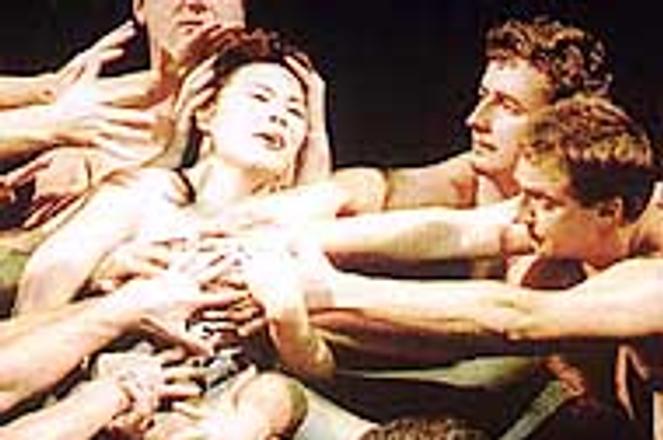JAPANESE soprano Nao Higano in Schönberg's opera.photo: Courtesy of SND
AT THE BEGINNING of the 20th century, before the first world war, contemporary music entered a new era. The use of romanticism in music had been exhausted and composers had to search for new means of expression during those turbulent times. While some stretched the traditional principles to their limits, others developed new strategies.
The Slovak National Theatre (SND) recently added two works from that period to its repertoire; Austrian Arnold Schönberg's opera Erwartung (Expectation) and Italian Giacomo Puccini's one-act Il Tabarro (The Coat). While both works portray the mood of the day, they do it quite differently, and the SND is staging them together.
As artists, both composers sensitively convey the social and artistic crises that the world was coming to grips with at the turn of the century. Puccini remains faithful to traditional compositional principles but puts a new spin on them, whereas Schönberg radically deviates from what has come before.
Schönberg's first opera, Erwartung (composed in 1909 and premiered 1924, with its Slovak premiere October 4, 2002), represents a milestone in operatic history. Turning his back on romanticism, realism and verism (verita means truth in Italian), the composer turns to the principles established by the so-called Second Vienna school, which refuted the tonal harmony that European music was traditionally based on. His work is influenced by expressionist poetry and it oscillates between reality and a dream world.
In Erwartung he conveys the inner torment a woman experiences as she searches for her lover. The lyrics, written by Austrian Maria Pappenheim, are a fitting collection of cries, sentence fragments and solitary words.
Puccini, the most important Italian operatic composer of the generation that came after Verdi, created his works in a time that saw traditional principles fade away. Puccini found himself adjusting traditional tonal principles in order to build harmonic structures that perfectly linked the music to the story.
Puccini's one-act opera Il Tabarro is part of his trilogy Il Trittico, which was premiered in 1918. The work consists of three contrasting parts: veristic-impressionistic Il Tabarro, visionary-mystical Suor Angelica and the humourous-ironic Gianni Schicchi. The first opera of the trilogy shows the cruel conditions that workers endured at the Paris harbour on the River Seine.
The curtain goes up at 19:00, November 7, at the SND, Hviezdoslavovo námestie, Bratislava. Tickets (Sk50-200) are on sale at the theatre's box office on Komenského námestie, Tel: 02/5443-3764.


